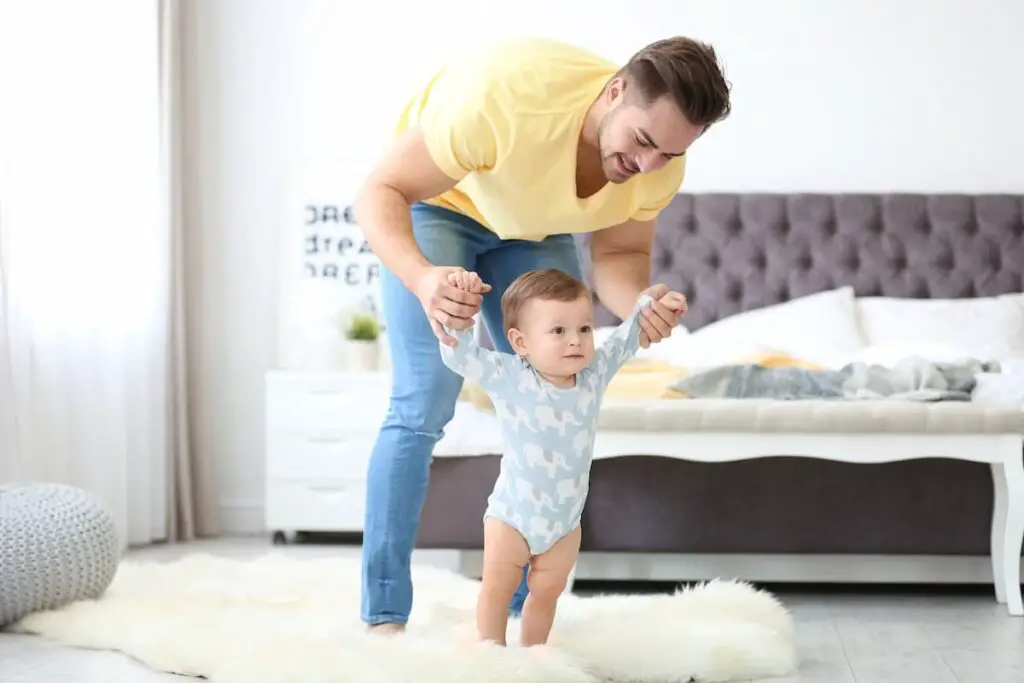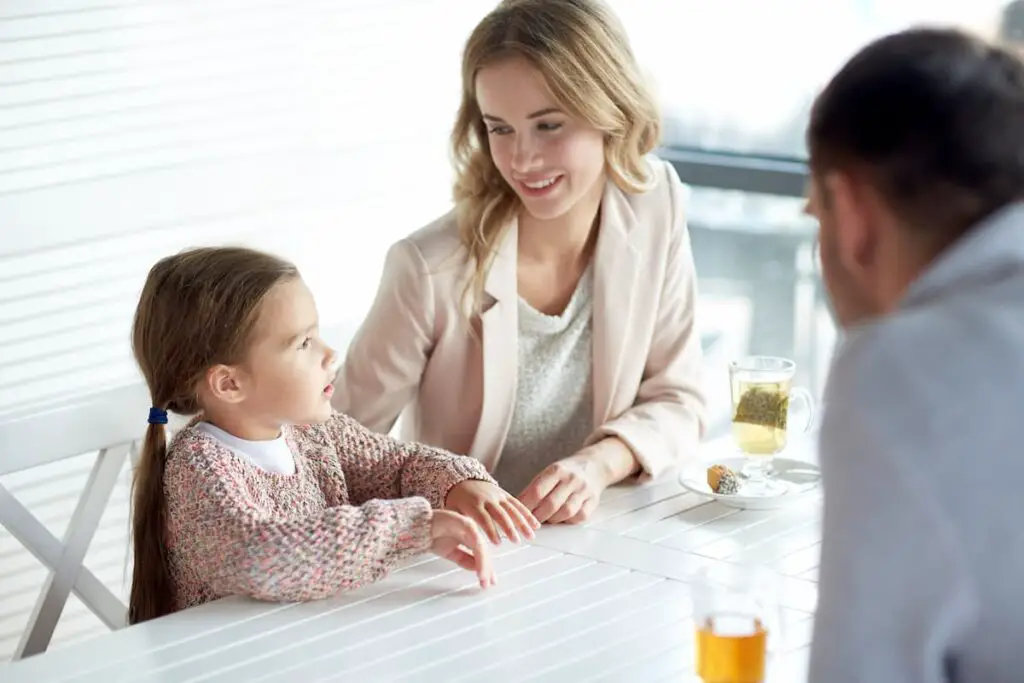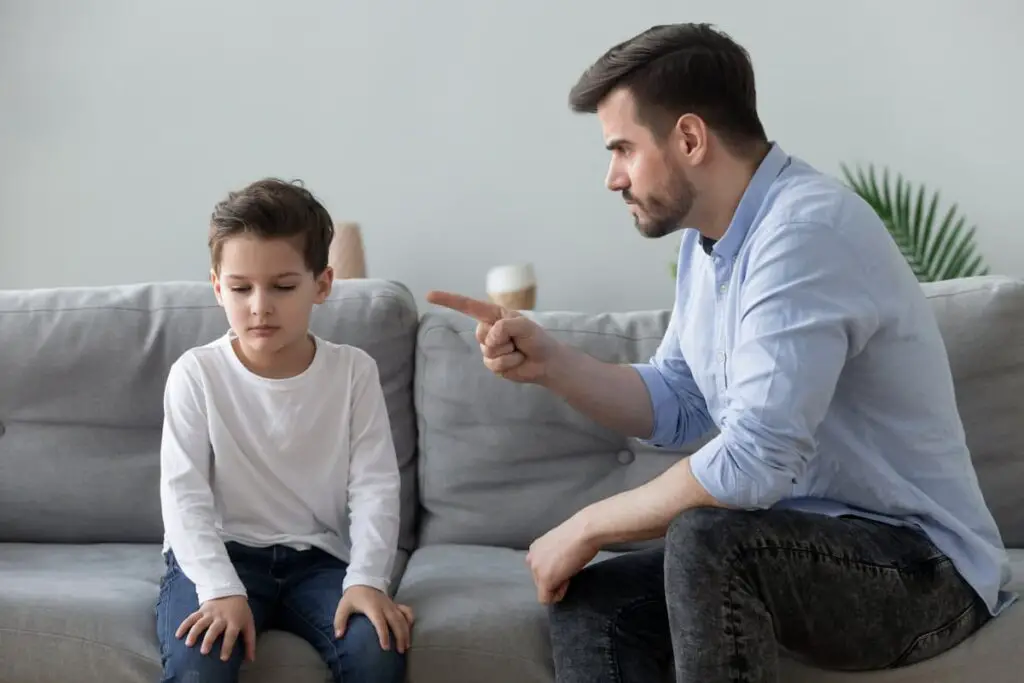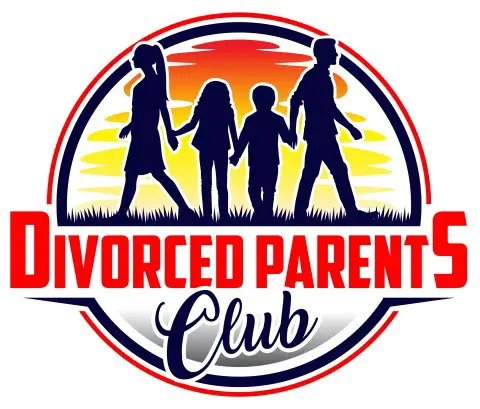The battle for custody during divorce can be vicious. But when the child is a baby or toddler, other issues come into play. So, should fathers get shared custody of babies or toddlers?
Fathers should absolutely get shared custody of babies, toddlers, or children of any age. There is no guarantee that the mother will provide better care for the child than the father. There is also the issue of developmental issues faced by children when they grow up without fathers.
The only possible argument that makes any sense is in cases where the baby is still being breastfed by the mother.
But even then, if the mother is looking out for the interests of the child more than her own, she should be willing to pump and freeze breast milk for the father to give to the child in a bottle.
If you’re a father looking for ammunition at the family court, or a woman who wants to make a balanced decision for your child, keep reading.
In this article, you will find useful information regarding this topic as well as academic views on the same.

A New Dispensation for Gender Roles
Humanity has come a long way. From our hunter-gatherer roots to the agricultural revolution, the structure of our societies has evolved. Watching the series ‘Bridgeton’ on Netflix mirrors archaic traditional gender roles where the woman stays at home, and the man is responsible for providing.
However, the 21st century is a sharp contrast to Victorian society. No longer can we say with all certainty that men are better providers than women. Nor can we claim that women are better caregivers to children than men.
To make any of these claims is to knowingly and perhaps unforgivingly focus on rhetoric rather than the realities of modern society.
I set this background because it is essential to eliminate any preconceived notions about fathers’ relationship with their babies.
Too often, men who desire to play a role in their children’s lives have been denied custody. This happens, not because the father is a menace to society, but because of the perception that women care for children better than men.
However, if men are no better than women in the workplace, then women are no better than men raising children.
Now, I concede the role of biological limitations in gender roles. For example, a man cannot breastfeed a child. Yet, one could argue that being the primary care provider transcends biology. Without a doubt, willingness and finesse play a significant role.
Consider how many first-time mothers are frustrated when faced with the task of raising a toddler as discussed in The Washington Post. This seems to indicate that childcare goes beyond “maternal” instinct. Nursing mothers widely report feelings of guilt, resentment, anger, and anxiety.
Changing diapers, feeding a hungry child, changing your sleep patterns to accommodate your child are examples of what to expect. It is a new dispensation in our society. We are no longer allowed to assume that only women can provide care to a child.
If a man is willing to attempt, give him a chance. After all, first-time mothers also have difficulty adjusting to the demands of being primary caregivers.
While we’ve set the background, we still need to show tangible evidence why men deserve a fair chance at custody. Next, we dive into the psychological implications of a father’s presence or absence.
Child Development Considerations for Father Custody
Many children have absent fathers through no fault of theirs. And while many mothers are champions, the impact of fatherlessness still rings throughout society. Many psychological issues that adolescents face stem from infancy.
By the time a child is four years old, many things become permanent, or deeply ingrained. That is why it is important for the father to be present from early on.

1. Father’s Play Sensitivity
The concept of father play sensitivity is rooted in the idea that fathers are more prone to participate in playful, physical, social activities with their children. Mothers have a different way of interacting with children, mainly emotionally and verbally. This is the reason why shared custody is better than single custody; it allows for balance. The child experiences the best of both worlds.
You are more likely to find a father engaging in mock wrestling fights with his child. To drive this home, fatherhood has become synonymous with taking the child to sporting events or even playing video games together.
Father’s play sensitivity is vital to a child’s development because it fosters healthy attachment. The theory of attachment styles posits that the kind of relationship a toddler has with her parents will determine how she responds to people when she gets older.
By extension, we see that denying a child the kind of play that a father excels at giving is detrimental. The child becomes oblivious to specific social cues and may not blend well with other children. In most cases, the child will carry this dysfunction into adulthood.
Many children grow up without a father and still turn out great.
Some fathers choose to be irresponsible but when they want to be involved, society has a responsibility to help their children stay connected to them.
2. Fathers and Mothers Have Different Authority Styles
Authority could be a word that most people find unpalatable.
Perhaps because the word is associated with control, we often can’t differentiate between authority and abuse. But the truth is that when we fail to exercise power over the child, we create a nuisance.
You try to feed the child, but he refuses. You try to put him to sleep, but he stays awake and cries. The child gets away with everything because the parent refuses to exercise authority.
Toddlers can be tyrannical, and when parents don’t stamp authority early on, the child goes through life believing that he can do anything and get away with it. After all, his parents did not set boundaries.
Failing to exercise authority will make you resentful of your child because you will let him get away with behavior you hate. He may eat all the food in the house without considering others or yells at you in public, making you feel embarrassed.
You love him, but you resent him because he is a tyrant. You might also raise the community bully who thinks the world should worship him. You don’t want to be the parent whose undisciplined child injures another more disciplined child.
Now, sometimes children choose their paths. But this study by Maxson, Thomas Z states that authority or the lack of it impacts social behavior.
Furthermore, Gozu, Hamide; Newman, Joan; Colvin, Kimberly claim that mothers have a different authority style from fathers.
The different kinds of authority have varying impacts on children, making a case for shared custody. The father’s style is not any better than the mother’s style and vice versa.
But it does make for a more balanced individual to experience both authority types while growing up. Simply put, the diversity in approach to authority will impact positively.

3. Father Involvement and Academic Performance
Studies show that fatherless children are more likely to perform poorly in school or leave school altogether. According to Rikuya Hosokawa, Toshiki Katsura, Miho Shizawa, fatherlessness impacts academic performances in the following ways.
- The behavioral problems associated with the lack of a father figure can often lead to lower grades.
- Fatherless children are more likely to experience lower income than children with fathers. In a world where consumerism is the order of the day, the inability of a child to afford the things that their peers afford could affect adjustment to their school.
- The lower income that accompanies fatherlessness also impacts the child since it becomes more difficult to pay school fees. As a result, some children stop schooling.
Some mothers are more financially secure than fathers. In cases where the father is better off, child support is compulsory. Yet, seeing other kids at school talk about their fathers can impact their self-perception.
As a result, fatherless children perceive themselves as less intelligent than other children. These children can have a better shot at school if fathers get shared custody.
4. The Impact of Fathers on Child Sociability
We have discussed the impact of fatherhood on a child’s academic performance. Much of this has to do with how the child adjusts to life and interacts with others.
To quote Rikuya Hosokawa, Toshiki Katsura, Miho Shizawa:
“Many studies suggest that the influence from the father’s involvement begins early in a child’s life, as paternal involvement is associated with many aspects of child development, including social, emotional, psychological, and cognitive development.’’
A father’s involvement impacts a child’s social development positively. This is seen in their social competence, initiative, and maturity.
Paternal influence is meant to teach a child vital social skills such as assertiveness, self-control, and cooperation. Lack of assertiveness will lead to a child being bullied, impacting their ability or willingness to make friends.
A child who cannot control himself will often become wild, with a higher potential for drug addiction. Finally, if a child does not learn to cooperate with others, he will be ostracized from the social group, leading to antisocial behavior.
Thus, low or zero paternal involvement in a child’s life leads to more issues than anyone is willing to shoulder.

5. Fatherlessness Could Lead to Mental Health Issues
It’s a common theme when fatherless adults speak about their experiences. “I always felt like my father did not want me, that I was not enough.”
When a court denies the father shared custody, we often see the mother tell the child many vicious stories about the father. “If he wanted to be here, he would,” she says. She does not realize that she’s communicating to the child that their father does not want them. Imagine not being liked by someone who should adore you?
The feeling of rejection can lead to many mental health issues.
For example, a fatherless child may have problems with anxiety stemming from their fear that everyone will reject them. The child assumes that nobody wants them because the father abandoned them.
The child may react in many ways. They could become violent and openly hostile to other people. Their reaction could be nihilism, depression, social withdrawal, or even suicide.
Psychotherapy is often about finding these issues and correcting these dysfunctional assumptions. But many times, people have done too much damage before realizing that a judge’s decision and a mother’s lie led to a profoundly dysfunctional life.
6. Fatherlessness Could Lead to Gang Involvement and Criminal Activity
According to the Minnesota Psychological Association, children who have more chances to interact with their fathers have less potential of engaging in illegal activity. A study of female prison inmates by Snell, Tracy, & Morton, 1991 showed that more than 50% of the residents came from fatherless homes.
Furthermore, children from single-father homes showed no difference in incarceration rates. This further underlines the importance of a father figure.
One explanation for this phenomenon is seen in the reason why young people join gangs. We already explained the social difficulties that fatherless children often have to endure. These difficulties could cause them to find friends in the wrong places.
These kids play directly into the hands of gangs, who promise them camaraderie, safety, and financial independence. The same thing plays out in the relationship dynamic between a pimp and a prostitute.
One of the most brutal pimps in American history, Iceberg slim, spoke about the impact of fatherlessness on young women. He says they had daddy issues that made them susceptible to manipulation.
The promise of money and a man that can impose his will on them was often a hook he used to bring women into his harem. Women with fathers have fewer needs for what people like Iceberg slim offer.

7. Giving a Father Shared Custody Does More Good Than Harm
No doubt, there are a lot of knuckleheads out there whose only claim to fatherhood is the stirring of their loins on a lonely night. We do not talk about them. But to those stand-up guys who want to fulfill their roles as fathers, shared custody is more beneficial to the child than single custody.
At what age can a baby stay overnight with Dad?
As a general rule, once a baby is 6-9 months old, they are fully equipped to be away from their mother for a period of time mapped out in the joint custody arrangement.
But it may be that the judge makes a custody decision that slightly favors the mother given a baby’s lack of ability to understand why they aren’t with their mother.
That being said, for better or for worse, many babies these days are shipped off to daycare or left in the care of nannies, and we don’t question that.
So why would we question them being away from their mother so they can be with their father?
How does breastfeeding work with child custody?
As a general rule, a court will not view a mother’s breastfeeding as a reason to deny a father partial custody of the child. After all, a child having shared custody will always be what’s in the best interest of the child.
The court will likely note that weaning the baby off breastmilk or having the mother pump breastmilk and provide it to the father will be a suitable compromise.
Now it is true that breastfeeding is more than just providing the baby with nutrients.
After all, there are many physical and emotional benefits to the baby from breastfeeding, including that bonding time. But while that may be in the best interests of the child, so is having an active father in their life. (source)
Best custody schedule for a toddler
Toddlers love routine. They crave having a set agenda that doesn’t vary wildly. So right out of the gate, we know that any type of joint legal custody will be disruptive to that.
But guess what? So will hardly seeing their dad.
Having both parents totally involved is definitely in the child’s best interests. Unlike with older children where there is joint physical custody that rotates after several days, the custody order will often call for what’s called a 2-3-3 schedule.
This parenting plan calls for the toddler to switch between parents every 2 days. With that, the toddler never goes very long without seeing either parent.
How do extracurricular activities work with child custody cases?
My ex and I did this last spring with our then 4-year-old. She had soccer on Saturdays and we swap out with our daughter every week.
So while we could have each purchased an individual soccer set, we opted to simply pass off the soccer backpack at the time we swapped our daughter.
I was responsible for her on my weeks, and my ex was on her weeks.
Is 50/50 custody best for a young child’s psychology?
In short, not seeing both parents daily is detrimental to the well-being of very young children.
That is the curse of divorce and the irony with the perception of the mother being the primary caregiver (since women initiate divorce 75% of the time).
But as they say, $hi# happens.
So outside of the traditional 2-parent home, the next best scenario is indeed 50/50 custody. This allows the child to see both parents regularly and with equal time.
Even more ideal is if the parents avoid a custody battle, co-parent in a communicative, supportive, and caring way, make important decisions together, and maybe even be able to spend holidays and birthdays together as a family.
That was the scenario my ex and I planned on.
Unfortunately, her descent into substance abuse and eventual arrest blew that up as it caused our older 2 daughters to be traumatized and not want to see her. She in turn took offense at me for wanting to support their mental health and decision (they are 14 and 15).
And now we’re in this toxic parallel parenting environment, at least for now.
Can parents decide for themselves about custody of their children?
Yes is the short answer. Now the ideal scenario would be for the couple to map that out during the divorce process and put all of that into the divorce decree.
You don’t want to modify that agreement verbally once the divorce is finalized.
And that’s because if one of the exes later decides they don’t like it, without it having been legally modified, the other parent who is seemingly violating the official agreement could be help in contempt of court.
And even if you had the agreement noted in a text or email, that is unlikely to sway a judge that it was OK for you to knowingly violate a court order.
So if the divorce is done, get a lawyer to draft the appropriate amendment to the original document so that the new joint custody of a child or visitation schedule is legally noted.
Common terms and definitions
- Guardian Ad Litem – A court-appointed liaison designed to investigate the custody arrangement on behalf of the judge and have final decision-making authority. This is a paid position where both parents typically split the cost.
- Non-Custodial Parent – A noncustodial parent does not have custody of the child whatsoever but may have visitation rights
- Physical Custody – The parent where the child lives. It may be sole physical custody or shared physical custody.
- Legal Custody – This parent has the ability to make major decisions on behalf of the child such as medical, schooling, etc, even if they do not have physical custody or share physical custody. This can be shared between both parents if both share physical custody. But 1 parent may also be granted legal sole custody.
- Temporary Orders – As the name implies, this is a temporary court order signed off by a judge while the lawyers and judge negotiate a final order which is a more permanent custody agreement.
Conclusion
I’m sure there’s a lot to be said about custody for mothers. However, today, we focus on the role of fathers in our lives. And as we have seen, fathers have a significant impact.
At the end of the day, a child needs both their parents fully active in their life.
That’s of course unless there is domestic violence, mental illness, alcohol abuse, or other similar issues at play with one of the two former spouses.
Of course, I have to add that I am not a lawyer, nor do I know the laws in your state or country. I am, however, divorced (twice) and have recent experience going through one. However, my comments and articles should not be taken as legal or professional advice. If you need legal or professional advice you should consult a professional in your area.
